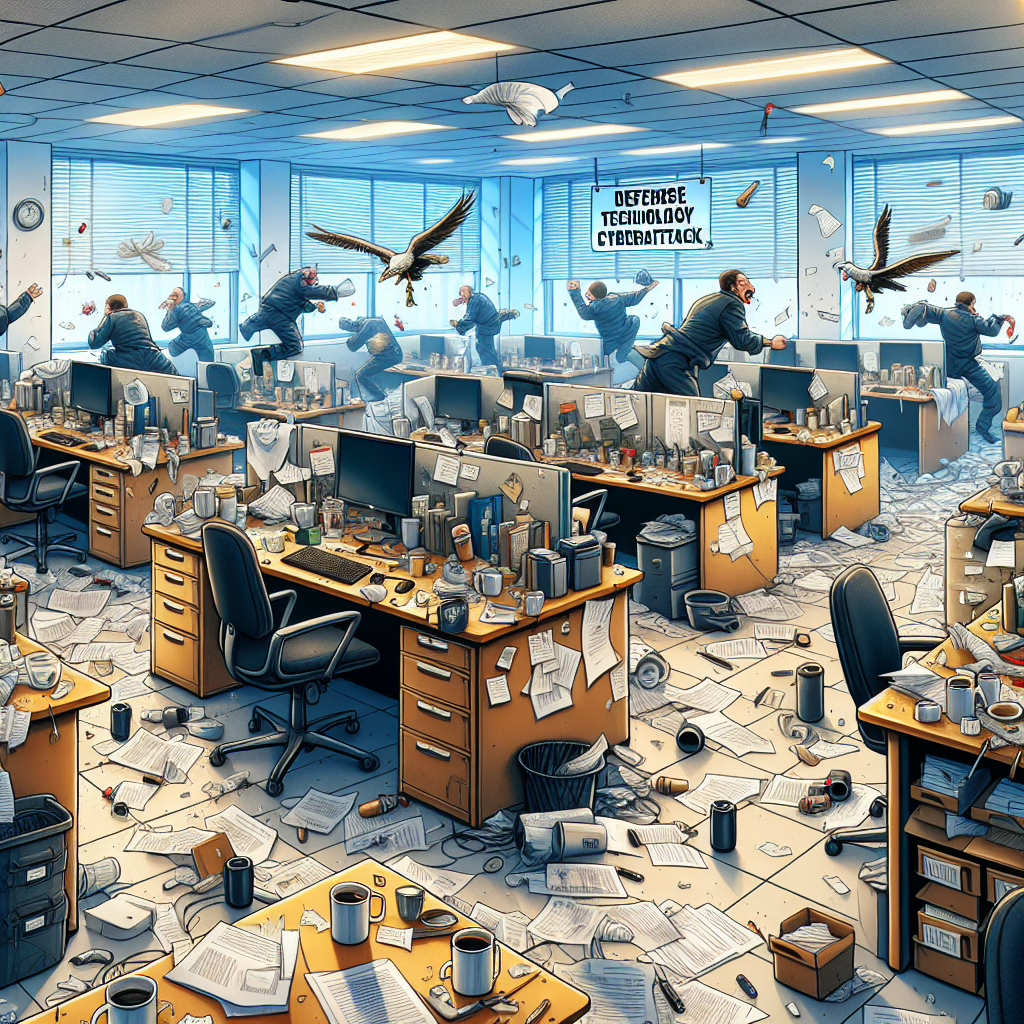In a plot twist worthy of a Hollywood blockbuster, the entire Pentagon defense technology sector seems to be packing their bags and heading for the exit. Yes, you heard it right! The resignation of key personnel is creating a perfect storm, putting us at an increased risk of cyberattacks. But don’t fret just yet; let’s dive into this intriguing scenario with a dash of humor and a sprinkle of insight!
The Great Tech Exodus: What’s Happening?
Picture this: a bustling Pentagon office filled with brilliant minds, all working tirelessly to protect national security. Now, imagine that scene replaced with empty desks and forlorn coffee cups. That’s right! The Pentagon defense technology team is facing a brain drain as professionals seek greener pastures.
This isn’t just a case of mid-life career crises; it’s more like a mass migration! Experts are leaving for various reasons—some cite burnout, while others are lured by the shiny prospects of the private sector. After all, who wouldn’t want to trade in the grind of government work for the allure of tech startups offering flexible hours and ping pong tables?
Why Should We Care About This Exodus?
Now, you might wonder, “What’s the big deal?” Well, dear reader, the stakes couldn’t be higher! As talent exits stage left, the potential for cyberattacks looms larger than ever. Cybercriminals are not known for their patience; they’re more like kids in a candy store when they smell vulnerability.
The Pentagon has historically been a fortress against cyber threats. With seasoned professionals stepping down, there’s an urgent need to fill those gaps. Imagine leaving your front door wide open while going on vacation—definitely not recommended!
The Ripple Effect: From Pentagon to Private Sector
As these defense tech wizards transition to other ventures, they take with them invaluable knowledge and experience. You can bet your bottom dollar that companies like Google or Amazon are eagerly welcoming these experts into their ranks. While it’s fantastic for innovation in the private sector, it leaves our national security with a bit of a hangover.
Cybersecurity is like a game of chess—every move counts! Without experienced players in the Pentagon’s defense technology field, we risk making reckless moves that could expose critical systems to threats. A gap in knowledge can lead to lapses in security protocol and increase vulnerability to cyberattacks.
The Future: Building Back Stronger?
While this situation may sound dire (and trust me, it is), there’s always room for optimism! The government can take this opportunity to reassess its approach to recruitment and retention in Pentagon defense technology. Why not offer competitive salaries and benefits that rival those high-flying tech firms? Perhaps enticing bonuses or innovation grants could attract top talent. Maybe even introduce some exciting perks like work-from-home options or mental health days—because we all know that good mental health leads to better cybersecurity!
Furthermore, fostering a culture that values innovation and creativity can help retain top talent. Imagine if employees felt empowered to share their ideas without fear of bureaucratic red tape! Implementing modern workplace practices could lead to more robust defenses against potential cyberattacks.
Final Thoughts: A Call to Action
The current exodus from Pentagon defense technology certainly raises alarm bells about our cybersecurity future. However, by addressing these challenges head-on and encouraging new talent to step up, we can build an even stronger fortress against cyber threats.
It’s paramount that we invest in technology education and outreach programs to ignite interest in cybersecurity careers. This will ensure a steady influx of new professionals eager to protect our national interests.
So let’s rally together—government officials, industry leaders, and everyday citizens alike—to support initiatives that attract and retain skilled professionals in our national security landscape!
What do you think about this situation? Will we see improvements or further deterioration? Share your thoughts below!

